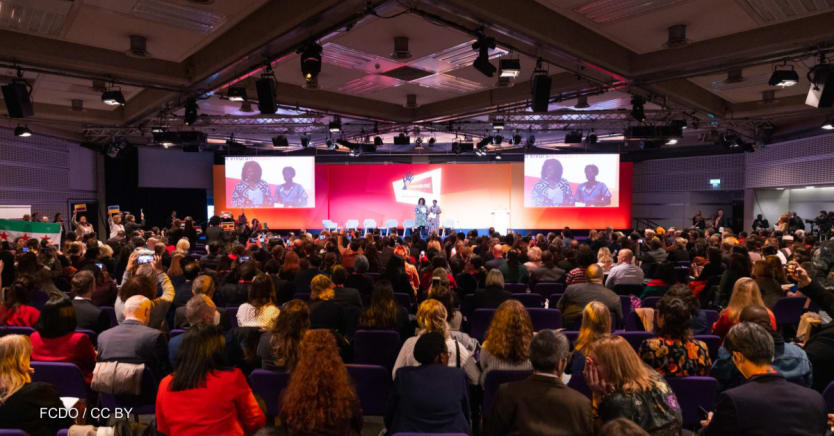
From early childhood, I was forced to face the reality that political insecurity causes increased levels of violence against women and girls. Living in the United Kingdom from age 4, I would always look forward to traveling back to my home in Somaliland to see my grandparents, but on one of those trips, at age 6, the experience became a living nightmare. War broke out and I had to leave with my family for neighboring Djibouti, where we stayed for several months. This is also where I underwent female genital mutilation, or FGM, when I was 7, as my family felt a sudden sense of urgency.
The more our world is at war, the more women bear the brunt. The Global Network of Women Peacebuilders suggests that 80% of the victims of war are women and children, yet few countries have recognized these links. In 2014, I was glad to see the U.K. positioning itself as a world leader on preventing sexual violence in conflict. On the back of a program that began two years earlier, the government hosted the Global Summit to End Sexual Violence in Conflict led by William Hague and Angelina Jolie. This rallied global attention for the issue and put women, peace, and security center stage. Pledges were made and the issue was raised to the top of the world’s agenda.
However, a damning report from the Independent Commission for Aid Impact in early 2020 found that the “flagship government programme to tackle sexual violence in conflict zones risked letting survivors down due to a lack of senior leadership, poor strategy, and cuts in funding.” At the time, it was also reported that members of Parliament blamed the failure on the inability to sustain momentum after William Hague left the Foreign, Commonwealth & Development Office as the reason for the project falling “far short.”
Last week, I attended a second Preventing Sexual Violence in Conflict Initiative summit in London. As the event celebrated 10 years of the program and aimed to bring the issue back into focus, my hope was that we would move past the important panel discussions and make firm plans of how to include women in our urgent need to build peace in East Africa and in other areas of conflict around the world.
The conversations I had with other activists and politicians were fascinating, but I'm not sure what tangible progress actually took place, with few foreign ministers in attendance. In the end, 50 countries and the United Nations agreed on “urgent action.” I felt a sense of déjà-vu.
As a women’s rights activist and CEO of The Five Foundation, I have seen time and time again how commitments made in conference rooms on ending sexual violence in conflict, FGM, or other forms of violence against girls will very rarely translate into meaningful actions or funding. We even set up a grassroots initiative called The Five Fund to address this exact issue.
While countries make grandiose pledges to look good for media coverage, it is extremely difficult for civil society to track accountability of these many and varied pledges over time. And, if called out, what often seem to be very logical reasons are given to why policies or funding had to be diverted — a worsening economic situation, a new war are common explanations.
It is not enough that we see renewed commitments. It has been proven that they are not sufficient or reliable. FCDO needs to embed change at its core and update its own priorities by putting the principle of gender equality at the heart of aid and diplomacy.
This would in effect be a “feminist foreign policy.” In practice, it means that issues such as ending sexual violence or girls’ education need to be meaningfully prioritized in written strategies. Foreign policy decisions must take place through a feminist lens, with the premise that women must access economic justice, and be clearly included in peace-building and political leadership.
Importantly, it also means that multiyear funding is budgeted for and transferred to women’s organizations working toward realizing these ambitions at the local level. This could mean funding a grassroots group working to end FGM in a country such as Somalia, where 99% of women have been affected, or to a front-line organization in the Democratic Republic of Congo, where up to 1.8 million women have been raped during their lifetimes, according to a 2011 study.
Unless international aid and foreign diplomacy strategies include guaranteed and specific financial funding for women and girls at the grassroots level — in countries where the violence is happening — we will be back here again in another decade, listening to "renewed" pledges, which might get new media coverage, but then evaporate into thin air when nobody is really paying attention.






